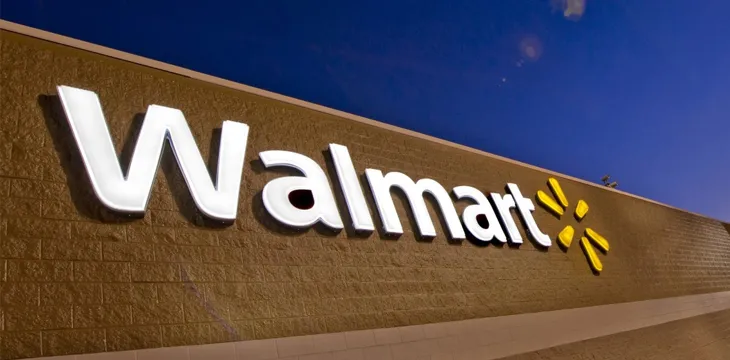|
Getting your Trinity Audio player ready...
|
Walmart, the world’s largest retailer both by revenue and employee count, has turned to blockchain technology for help in its battle with E.coli contamination scares.
On Monday, the retailer announced that it is requiring its produce suppliers to integrate a blockchain-based tracking system into their operations by September 2019.
In its letter to the “leafy greens” suppliers, Walmart outlined its new blockchain-enabled Walmart Food Traceability Initiative, which seeks to “increase transparency in the food system and create a shared value for the entire leafy green farm to table continuum.”
Walmart said it has partnered with IBM and other food companies for a user-friendly, low-cost, blockchain solution for end-to-end traceability, and it expects its direct suppliers to conform to the one-step back traceability by Jan. 31. Then, suppliers will need to work within their vertical systems or with their suppliers to integrate the system by September 30, 2019.
The move comes following news of several outbreaks of E.coli in romaine lettuce and Salmonella in products from eggs to breakfast cereals. Frank Yiannas, Walmart VP for food safety, attributed the outbreak to a lack of tracking technology, which made it difficult for customers to confirm where exactly the produce on display was grown. With the new system, Walmart said it will be able to easily source any food items, which, at the moment, is a challenge. According to Yiannis, tracking time would be slashed from the six days to a mere two seconds.
He described the challenge of tracing the origin of produce as “almost insurmountable.” Health officials at the Centers for Disease Control warned against eating lettuce grown in Yuma, Arizona. Yiannis, however, pointed out: “None of the bags of salad had ‘Yuma, Arizona’ on them.”
“In the future, using the technology we’re requiring, a customer could potentially scan a bag of salad and know with certainty where it came from,” the Walmart executive said.

 07-13-2025
07-13-2025 





